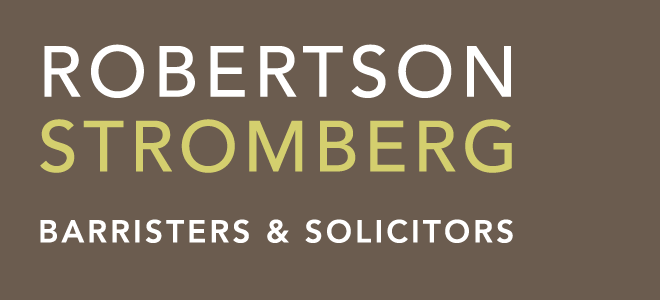This post discusses the recent decision of the Court of Appeal for Saskatchewan in Walker v Hunter, 2024 SKCA 34. This decision offers an illustration of when a lawsuit may be struck out, on the basis that it is statute barred (i.e. commenced too late). Such a decision is a reminder of the harsh legal consequences which can flow from a limitation period.
Background:
To understand the reasons of the Court, it is necessary to review the underlying background:
- This appeal related from a dispute between siblings relating to their potential entitlement to farmland once owned by their father, David Hunter, who died October 19, 1998, and his wife, Gloria Hunter, who died March 13, 2007;
- Gloria and David, had six children. Four of them alleged that certain land was held in trust. These parties were:
- Lynda Walker;
- Brian Hunter;
- Murry Hunter; and
- Velvet Clark.
The above are the “Appellants”.
- A respondent party, who they sought a ruling against, was another sibling, Bruce Hunter.
- David and Gloria had a sixth child, Lorne Hunter, who died December 13, 2007. The executors of Lorne’s estate were also named as respondents. There were other various respondents as well;
- The historical context was that David and Gloria had acquired title to seven and one-half quarter sections of farmland while operating their family farm. Prior to his death, David transferred title to most of that farmland to the below:
- To himself, Lorne and Bruce, as joint tenants, or
- To himself, Gloria, Lorne and Bruce, as joint tenants; or
- David also transferred a small portion of the land to Bruce and Lorne as joint tenants.
- For that reason, when first David, then Gloria, and finally Lorne died, title to all these lands passed by way of survivorship to Bruce. These disputed lands are the “Lands”.
- In this way, Bruce, as the last survivor, finally acquired title to the subject Lands and, on April 1, 2008, transferred that title to himself and to Diane (Lorne Hunter’s surviving former wife) as joint tenants;
- On February 22, 2018 – more than nine years after the transfers to Bruce and Diane – Lynda, Brian, Murry and Velvet filed an originating application. It alleged that David had always intended that each of his six children should receive one quarter of Land, from the Lands, and that the Appellants had been wrongfully disinherited by Bruce;
- Lynda, Brian, Murry and Velvet alleged that David and Gloria intended that Bruce and Lorne would be entitled to continue to farm the Lands but only until they ceased farming, when it was to be shared equally between each of their six children;
- The originating application alleged that Bruce held the Lands in trust and that Bruce and Diane had been unjustly enriched;
Limitation period issue, and the Chambers Decision:
- On April 7, 2021, the respondents applied for a determination that the originating application had been commenced outside of the limitation period;
- In a fiat dated June 2, 2021, a judge of the Court of Queen’s Bench (“Chambers judge”) found that there was no evidence of fraudulent concealment as alleged by the Appellants and that the two‑year limitation period fixed by s. 5 of The Limitations Act, SS 2004, c L‑16.1 (“Act”) had expired in May 2010;
- The Chambers judge found that she did not need to determine if there was a resulting trust. She found only that if there was, it was breached on April 1, 2008, when the Lands were transferred to Bruce and Diane as tenants in common. The Chambers judge also held that, if there was such a trust, the breach was discovered by the Appellants on or about May 12, 2008, and that the two-year limitation period specified by 5 of the Act would accordingly have expired in the normal course in May 2010;
- In the result, the Chambers judge ordered that the originating application be struck;
- Lynda, Brian, Murry and Velvet appealed the Chambers decision, alleging that the Chambers judge erred in her identification of the test for fraudulent concealment under s. 17 of the Act;
- The Appellants also appealed on a separate issue, being that the Chambers judge had erred in dismissing their request for the respondents to provide an estate accounting in Estates of David Hunter and Gloria Hunter. That aspect of this decision is not discussed in this post.
Issue:
The primary issue on appeal was whether the limitation period had expired before the originating application was brought.
Decision of the Court of Appeal:
The Court of Appeal held that the limitation period had indeed expired, and thus the originating application in relation to the claim of breach of trust could not be maintained.
We begin by surveying what is a limitation period, and how it can be extended by any fraudulent concealment. Ordinarily, the Act provides that most claims must be brought within two years of a claimant discovering a number of things, including the below facts:
- That they have suffered loss;
- That it was caused by an act which is the subject of the claim; and
- That a legal proceeding would be an appropriate means to remedy this act.
However, the two-year limitation period can be extended if the proposed defendant has wilfully concealed certain things from the claimant, such as the fact that an injury occurred by the act of the defendant, or that a proceeding would be an appropriate means to remedy the injury.
Concealment
17 The limitation periods established by this Act or any other Act or regulation are suspended during any time in which the person against whom the claim is made:
(a) wilfully conceals from the claimant the fact that injury, loss or damage has occurred, that it was caused by or contributed to by an act or omission or that the act or omission was that of the person against whom the claim is made; or
(b) wilfully misleads the claimant as to the appropriateness of a proceeding as a means of remedying the injury, loss or damage.
The Court of Appeal took the opportunity in Walker, to outline what elements are required to show concealment and trigger the operation of s. 17. The Court in Walker held below:
[50] I am of the same opinion in relation to s. 17. Section 17 does not require that a special relationship exist between the party asserting the claim and the party alleged to have acted or failed to act in a manner that tolls a limitation period under this section. However, it does require proof that the wrongdoer wilfully concealed facts specified in s. 17(a) or wilfully concealed the appropriateness of a proceeding as described in s. 17(b). There is no additional requirement to establish unconscionability, and unconscionability absent such facts does not engage s. 17.
[emphasis added]
In passing, the Court of Appeal held that the Chambers judge had misstated the test for s. 17. However, the Court held that this misstatement of the test made no difference to the ultimate outcome. That is, under the facts in Walker, s. 17 was not triggered. This is what the Chambers judge also had found (albeit on the wrong test).
That means that the bottom line decision of the Chambers judge, on the limitation period issue, was correct. The Court of Appeal held that this was so for two reasons.
First, there simply was no evidence that Mr. Ernst, an executor of Lorne Hunter’s estate, had wilfully concealed materials facts from the Appellants, as the Appellants had alleged:
[52] However, the fact that the Chambers judge erred in this way does not mean that this appeal should be granted in relation to this issue. That is so for two reasons. First, as I have explained, the Chambers judge held that, regardless of whether there was a resulting trust that created a special relationship, “without evidence that Mr. Ernst wilfully concealed from the applicants the possibility of a resulting trust, there can be no basis to claim that fraudulent or wilful concealment arose so as to suspend the limitation period”. She also held that there was not only “no evidence to suggest that Mr. Ernst wilfully concealed the possibility of a resulting trust” but also “no evidence of Mr. Ernst’s intention whatsoever” (at para 42).
Second, the Court of Appeal held that the record showed that the Appellants knew or ought to have known all of the things, needed to bring a claim, in 2008. This knowledge, back in 2008, meant that s. 17 could not avail them. The Court of Appeal held that s. 17 does not suspend the operation of a limitation period, if the claimant already knows the material facts needed to trigger the limitation period:
[58] I agree with this reasoning. The fact that the appellants knew or ought to have known all of the things listed in s. 6(1) in 2008 meant that s. 17 could not avail them. Section 17, like the equitable doctrine, does not suspend the operation of a limitation period from the day the potential claimant knew or, absent concealment within the meaning of s. 17, ought to have known of the matters listed in s. 6(1).
Conclusion:
The Court of Appeal upheld the decision of the Chambers judge on the limitation period, and found that the application relating to the alleged breach of trust, was statute barred.:
[63] In the result, I have concluded that the Chambers judge erred in law as to the interpretation of s. 17 of the Act. However, that error had no effect on her decision to strike the originating application as it related to the claim for relief based on an alleged breach of trust. The Chambers judge did not err in finding that the limitation period relating to that claim had expired, as there was no wilful act or omission within the meaning of s. 17. The appeal of the decision to strike the originating application in relation to the trust claim must accordingly be dismissed.
[emphasis added]

